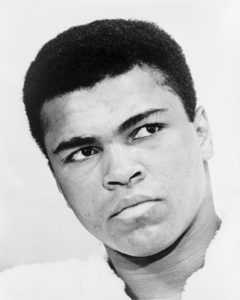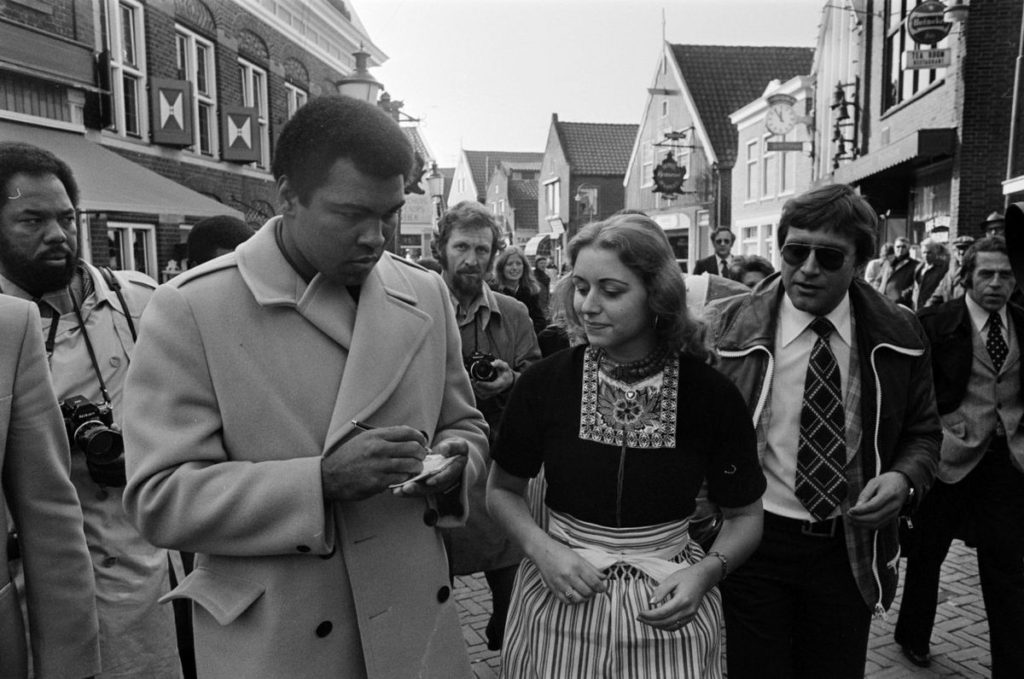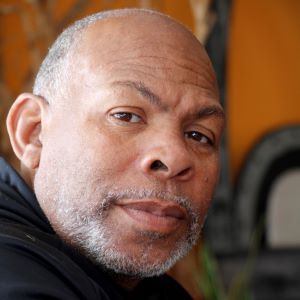The BAD Man is now resting in peace. When I grew up, the loudest and most bodacious sports voice I heard was that of Muhammad Ali. Ali was something else. He meant a lot of things to a lot of people. To me, Ali was this bigger than life figure I could only image of meeting as I stood by my father’s radio listening to some of his fights.
The rope-a-dope strategy, the “Sting like a Butterfly, Float like a Bee” quote, the defying resistance to joining his fellow American comrades to go to the Vietnam War, the eloquent poetic pearls he used to deliver, the motor-mouth taunts of opponents, the religious conversion to Islam, and the greatest set of boxing skills the world has ever seen, Muhammad Ali gave us all a reason to cheer, jeer and reflect.
Ali gave America plenty to cheer for during his epic triology box-off against Mighty Joe Frazier and the legendary “Rumble in the Jungle” match against George Foreman. The jeering came with his stance on not taking part in the Vietnam War, which ultimately led to his heavyweight championship belt was stripped.

Ali became the scary Negro to white America when he denounced his birth name of Cassius Clay for his Muslim name and became a central figure in the black political component of the Civil Rights Movement. And he wasn’t shy about it. He was pretty. He was cocky. He was more than good in what he did for a living. He was the greatest.
There were plenty of icons raised from the ashes of the time period that Ali sprouted from that made America do a man-in-the-mirror reflection of itself: Angela Davis, John Carlos, Tommie Smith, Stokely Carmichael, James Baldwin, Sidney Potier, Harry Belafonte, Jackie Robinson, Jim Brown, Lew Alcindor (Kareem Abdul Jabbar), and Bill Russell.
Yet, only Dr. Martin Luther King Jr. and Malcolm X superseded Ali during that era when it came to cultural impact. And you might get a debate on this. What made him so fascinating was the fact that Ali, unlike other Negro heroes, didn’t backtrack from his blackness.
The political and religious statements Ali often made, unlike professional athletes today, who are more worried about their commercial endorsements they get rather than what they really believe in, didn’t come without consequence.
That mattered little to Ali. Ali gave it to you, whether you liked it or not. He didn’t back down to anyone. In fact, Ali pissed off a lot of people, especially when he reportedly threw his 1960 gold medal into the Ohio River in rebuke to America’s racist tier of citizenship in the form of segregation and Jim Crow laws.
He didn’t care. Ali danced to the beat of his own drummer. That drummer was his faith. If anyone was looking for Ali to conform to the platform established by the status quo the way that the great Joe Louis did, they got a rude awakening. Ali was like no other sports superstar we’ve ever encountered.

That’s what we loved about him. Ali was the epitome of the 1960s: radical, daring, brilliant and unafraid to challenge the establishment. Ali didn’t back down from a battle, whether it was trying to combat Parkinson’s disease for nearly half of his life or going into the ring with boxing’s leading mercenaries like Frazier, Ken Norton, Ernie Shavers, George Foreman, and Chuck Wepner.
Who else could stare down the U.S. government while invoking his religious belief in refusing to enter the draft to go to the Vietnam War?
He talked trash the way some people go shopping. Ali could be brutal in the talking smack game. Because of their well-documented boxing matches, Joe Frazier was on the opposite end of many of Ali’s merciless verbal attacks. He was the ultimate trash-talker. Until Parkinson disease began to quiet what he had to say, Ali was clearly the Mouth That Roared.
Ali turned verbal sparring of his opponents into a specialized art form. He then would walk in the boxing ring and back it up by thumping his opponents time and time again. Being a byproduct of the riotous 1960s, Ali was the face of that era with his defiant, in-your-face and rebellious attitude. That rubbed a lot of people the wrong way.

But that was his MO. That was just who he was. Ali was more than the face of boxing during the 1960s, 1970s and early 1980s. He was the superstar of all superstars. If Michael Jordan, Magic Johnson, Kobe Bryant, Steph Curry and LeBron James all walked in the same room with Ali, the first man to win the heavyweight title three times, he would dwarf all of them and their combined auras.
Ali had it like that. He also had it within him to stare down segregation and discrimination and call a spade a spade. Ali personified greatness that we envision it to be. We all wanted to be like him. I remember watching the “Rumble in the Jungle” fight as a kid, and thinking that Ali had no chance against the morphed up and destruction-waiting-to-happen George Foreman.
I was amazed at seeing Ali take one ruthless punch after another from Foreman and still parade around the ring taunting the tiring heavyweight champion. Ali had rope-a-doped Foreman into a helpless heap of tired mass before knocking him out in the eighth round in that 1974 epic match.
From the pummeling of Sonny Liston to his draft evasion to whipping the big and bad George Foreman, Ali always found a way to shake up the world. He didn’t conform to the world; he made the world conform to him. This is why we celebrate him. He was a lot more than just being an athlete.
Ali was the metaphorical figure of what so many African Americans wanted to say and do during that hellacious times of open bigotry and second-class citizenship living. Like King, Malcolm X, Ali did not shy away from his duties to speak up and about the injustices and continued racist atrocities bestowed on black people.
He understood being a world-class athlete did not exempt him from being black. Ali fought these battles outside of the boxing ring with the same vigor and diligence much the same way he went to work in it. This is why he is the greatness.

Dennis has covered and written about politics, crime, race, sports, and entertainment. Dennis currently covers the NFL, MLB, NBA, NCAA, and Olympic sports. Dennis is the editor of News4usonline.com and serves as the publisher of the Compton Bulletin newspaper. He earned a journalism degree from Howard University. Email Dennis at dfreeman@news4usonline.com
